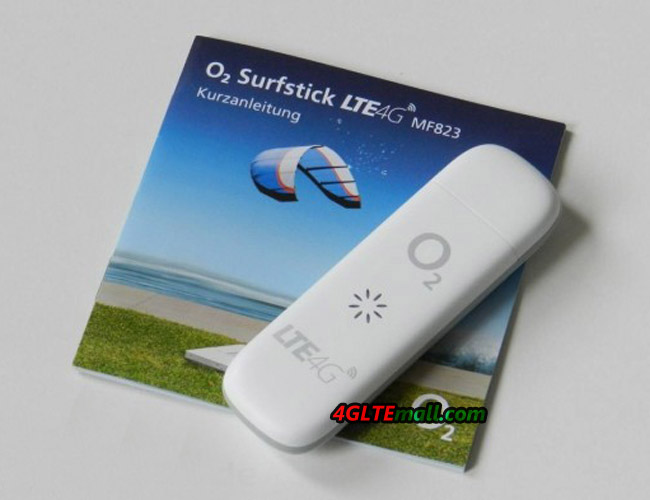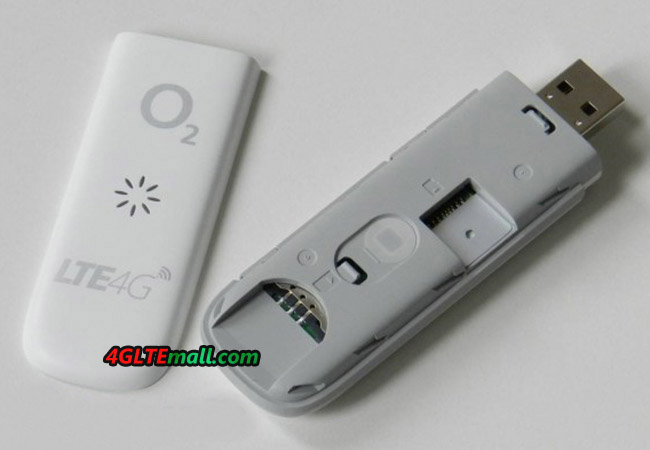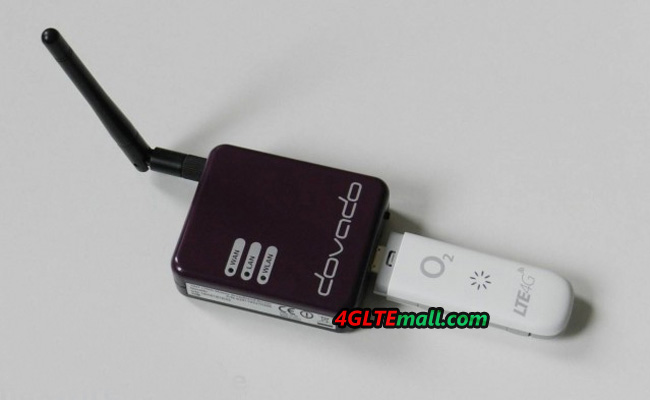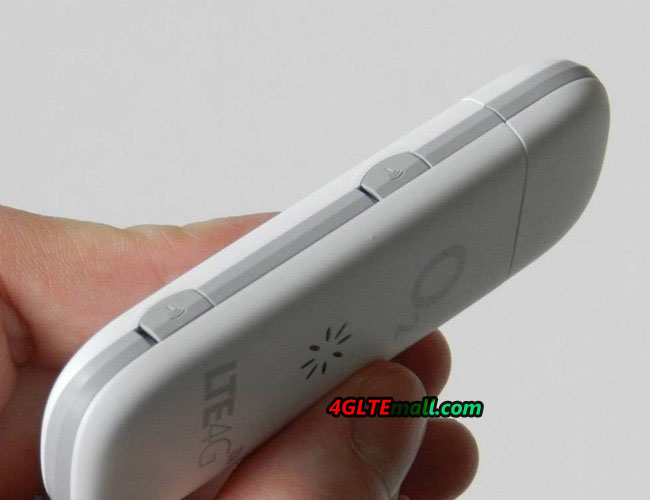In the last few weeks, O2 has a new LTE Surfstick ZTE MF823 in the product range. We have taken the “O2 Surf Stick 4G LTE” in detail and tested it in O2 LTE network. The ZTE MF823 is available on www.4gltemall.com without contract and is one of the best LTE surf sticks on the market. Inside the MF823 is a modem from Qualcomm, which belongs to LTE category 3 (up to 100 Mbit/s) UE and 3G UMTS, including DC-HSPA+ and GSM are naturally supported. LTE Category 4 is not supported yet, however, O2 advertises currently does speeds of up to 50 Mbit/s in its LTE network.
The ZTE MF823 is one of the smallest LTE surf sticks
Delivery and first impression
ZTE MF823 surf stick comes in a flat cardboard box, which looks like similar to the first O2 LTE sticks ZTE MF821D. Only on the design and on the back label, you can see that it is a different and new version of the surf sticks. The package is very simple, next to the surf stick is only listed a German-language Quick Start Guide.
At first glance, the ZTE MF823 in white seems very appealing. The dimensions and the weight is relatively low for an LTE Surf Stick, differences to a normal UMTS surf stick are no longer available. The entire front is removable, below that is the slot for the memory card and SIM card. The SIM card must be in standard size (mini-SIM). The USB port is protected by a cap, unfortunately the stick is not rotatable, and so the stick is always a few inches out of the laptop.
Settings
The O2 Surf Stick 4G LTE ZTE MF823 requires for operation software on the computer, only need to install drivers. After the first installation of the driver, the icon on the desktop of Windows or Mac OS is added. The configuration is thus completely browser-based, the steps works like the MiFi routers. The web interface has been found in the test as a great advantage, since it reacted extremely quickly and for the user, the operation is much more comfortable compared to separate software on the computer.
In the above embedded video, the settings in the web interface are described in detail, so we will limit ourselves here to the main functions: it provides detailed statistics on online time and data usage, you can send SMS messages and also modify the network technology if necessary, such as when the ZTE should MF823 spark only in the LTE network.
Under the cover, there is a slot for SIM cards and memory cards
An LED on the front of the ZTE MF823 is to inform about the current connection status. Once a connection to the Internet, the LED flashes – this is initially a bit confusing because it is the other way around, which is different from other surf sticks. The LED lights up when the connection is constant and without an active connection there is only a flashing visible. The connection itself is very fast, in our test, it connected much faster than modems with separate connection software. The reception strength in the LTE network was satisfactory, and it was strong, particularly in areas with poor reception. A short USB extension cable in this package box is found in the test to be very useful.
If desired, you can also equip the ZTE MF823 with two external antennas. This requires usually one or two adapters of TS-9 operation in LTE, a MIMO antenna or two simple antennas should be used in any case. And the operation in a Dovado router such as the Tiny Dovado is possible. But unfortunately, AVM FRITZ! did not recognize the ZTE MF823, so no internet connection could be made.
The operation on a router – here the Dovado Tiny – is possible
O2 LTE network: good extension, decent speeds
While using the ZTE MF823, we have also tested the LTE network from O2. We have performed velocity measurements in the entire city of Nuremberg; also we were in the region around Cologne. Both cities are so-called high-speed Areas of O2 and therefore already serve a large area with LTE. But even far outside of these cities, one often has a good LTE supply.
Under O2 LTE network, the speed could often reach to the advertised maximum of 50 Mbit/s download when located in the city. Even more surprising, the good uplink speeds could often reach above 20 Mbit/s, here you can praise the technicians of O2, and the other vendors generally offer considerably lower speeds. Latencies were on average between 40 and 60 milliseconds, in comparison with a bit higher than the competition.
The O2 Surf Stick 4G LTE ZTE MF823 has two antenna connectors
When one uses the O2 LTE network, is a fast page loading guaranteed. In the test Wore good speeds were available even in weak signal areas, which is different from the UMTS network, you can clearly see. So for O2 customers, it is certainly worthwhile to invest a few more euros for a LTE-capable rate, so at least our opinion after the test. If you get the unlocked ZTE MF823, you can use it with Vodafone, Telekom and O2.
Conclusion
The ZTE MF823 is a solid LTE stick, with which you cannot go wrong. Although the technology is not completely up to date (“only” 100 Mbit/s), the price is good and operation convinced with fast service and good data rates.





